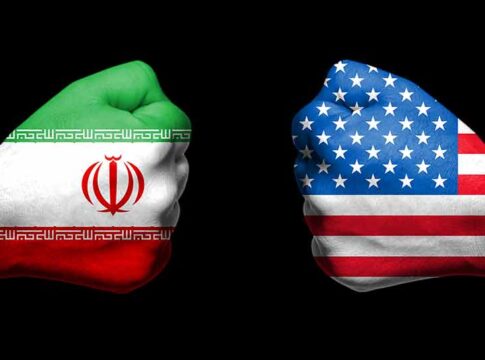The high-stakes nuclear negotiations between Iran and the United States have reached a critical juncture. Recent leaked UN reports highlighting Iran’s accelerated nuclear program have further complicated matters, prompting strong denials from Tehran. Could negotiations outcome reshape Middle Eastern geopolitics?
Diplomatic Standoff Intensifies
Iran is reviewing a formal U.S. proposal for a new nuclear deal, marking a significant step in negotiations that have intensified since April. Foreign Minister Abbas Araghchi confirmed receipt of the proposal, stating Iran would evaluate it “in line with the principles, national interests, and rights of the Iranian people.”
The White House has paused implementing new sanctions against Iran, signaling a departure from President Donald Trump’s “maximum pressure” campaign. This strategic shift aims to create a more conducive environment for diplomatic engagement as both nations attempt to revive elements of the 2015 nuclear agreement that Trump abandoned in 2018.
Iran warned it won’t strike a nuclear deal with the US unless Washington gives assurances that any agreement will include sanctions removal https://t.co/tdwpVZQrhr
— Bloomberg (@business) June 2, 2025
Nuclear Capabilities and Verification Concerns
Iran’s uranium enrichment program has accelerated dramatically, with the country now possessing over 400 kilograms enriched to 60 percent purity. This enrichment level sits just below the 90 percent threshold considered weapons-grade, raising significant concerns among Western powers about Iran’s nuclear intentions.
The International Atomic Energy Agency (IAEA) has reported that Iran continues to restrict inspector access, complicating verification efforts. A recently leaked UN report indicated Iran has further increased production of highly enriched uranium, though Tehran has rejected these findings and warned of retaliation if European powers use the report to reimpose sanctions.
#BREAKING The US proposal for a nuclear deal with Tehran is unbalanced and unrealistic, and lacks any clarity regarding sanctions relief, said Nour News, a media outlet close to Iran’s Supreme National Security Council said in a report on Sunday.
Tehran has repeatedly insisted… pic.twitter.com/bQDfzU3qqo
— Iran International English (@IranIntl_En) June 2, 2025
Sanctions Relief and Future Prospects
Iran has demanded clear guarantees that U.S. sanctions will be effectively lifted as a condition for any nuclear agreement. The Iranian government insists on continuing uranium enrichment with or without a deal, directly challenging the U.S. position that Iran’s enrichment program should not exist.
The U.S. proposal, crafted by special envoy Steve Witkoff, reportedly suggests Iran stop all enrichment activities and proposes a regional nuclear power grouping. Critical obstacles remain unresolved, including the extent of uranium enrichment allowed and the verification mechanisms to ensure compliance.
Both sides face domestic political pressures that complicate the path to agreement. The Trump administration must navigate congressional skepticism while addressing legitimate security concerns, while Iranian leadership balances economic needs against national pride in its nuclear achievements.
The coming weeks will prove decisive for determining whether these talks can yield a sustainable agreement or if they will collapse entirely. Failure to reach a deal could lead to renewed sanctions, increased regional tensions, and further nuclear advancement by Iran that could trigger a dangerous escalation cycle.

